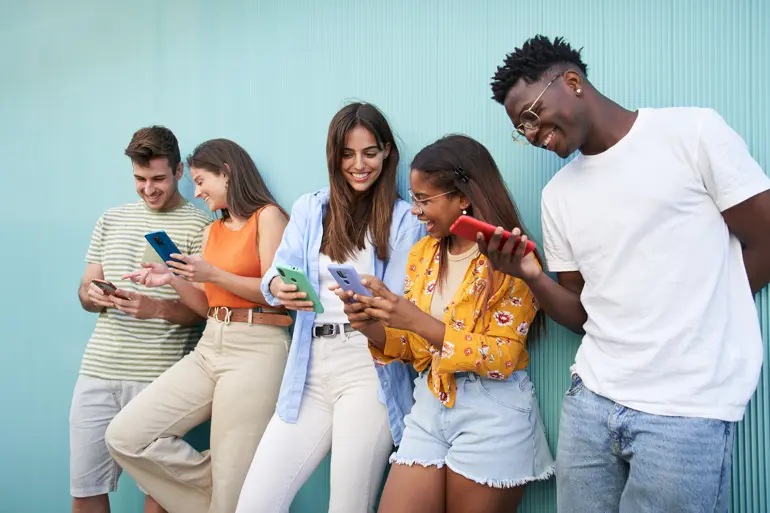From Facebook to TikTok: The evolution and impact of social media
In 2004, Harvard student Mark Zuckerberg launched a platform that would revolutionise how future generations communicate. Today, Facebook boasts over 2.9 billion monthly active users. The rapid rise of social media has profoundly changed how we communicate, share information, and connect with one another.
The late 1990s saw the emergence of the first social media platforms like Six Degrees, lasting from 1998 to 2000, and Friendster, 2002 to 2015. MySpace was the first social media platform that really took off and grew into a social network as we know it today, reaching global audiences and becoming the biggest social media platform from 2005 to 2009. Myspace was the first to offer customisable profiles and was used to share music between friends. Perhaps what made it lose users to Facebook was its focus on one particular area.
Facebook launched in 2004 at Harvard University, exclusive to Harvard students, but its real-name policy and networking focus quickly expanded to a global user base. Facebook took off rapidly and on a huge scale because of its unique features, like the News Feed, the ‘Like’ button, status updates, and instant messaging. The birth of Facebook completely changed the social media landscape and the way we were using it.
The next huge thing after Facebook was Twitter (now X), created by Jack Dorsey in March 2006, which centred around the concept of microblogging and real-time updates, limiting posts to 140 characters. Key factors in its rise include its use by celebrities and public figures, the hashtag feature for trend tracking, and its role in major movements like the Arab Spring, BLM, and the US Presidential Election. Twitter's ability to facilitate rapid, global communication and its integration with other media platforms cemented its status as a social media powerhouse, and meant it became a crucial tool for journalists and activists.
In 2010 Kevin Systrom and Mike Krieger’s Instagram emerged on the social media scene, shifting the global focus to visual content, offering user-friendly filters for people to create profiles tailored to their preferred aesthetic. This platform's rise had a significant impact on marketing and lifestyle, allowing users to amass cult followings and share their lifestyle, fashion, and makeup choices, which often set global trends. Instagram played a crucial role in the rise of influencers and celebrities like the Kardashians, shaping how generations perceive and engage with various aesthetics.
TikTok, launched globally in 2018, captivated audiences with its addictive short-form video format, rapidly amassing over a billion users. TikTok's appeal lies in its short, engaging videos that cater to our limited attention spans. Its algorithm personalises content, creating a dopamine-driven reward loop. TikTok’s growth was rapidly accelerated during the Covid-19 pandemic; ‘in Q1 of 2020 alone, the app had 315 million downloads, which is the best quarter experienced by any app, ever.’
TikTok's algorithm-driven content and viral challenges have made it a cultural phenomenon, influencing music, fashion, and even politics.
The broader impacts of social media
Platforms like Facebook and WhatsApp have made it easier to stay connected with friends and family across the globe, encouraging a sense of global community. This ability to communicate with anyone, anywhere, has also led to the rise of more light-hearted ways to celebrate and ridicule the human experience, like meme culture. Additionally, social media has become our primary source for news, how-to tips, recipes, shopping etc., making itself integral to our daily routines. However, while social media has democratised information sharing and made it more accessible, it has also facilitated the spread of misinformation, posing significant challenges for public discourse.
Not only has social media changed the ways that we socialise, shop, and communicate, it’s also seen the rise of a whole new variety of jobs. Explore the ever-evolving landscape of social media and web development and stay ahead of the curve. Enroll in our cutting-edge tech, data, and code courses today, and learn how to harness the power of these platforms to drive your personal and professional growth. Get started now and shape the future of digital communication.
